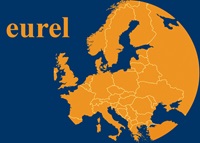Political orientations and attitudes are interconnected societal phenomena. Research findings indicate that the level of religiosity is an important factor influencing individuals' value orientations and political preferences, though not necessarily a determinant. Variability in attitudes and political orientations can be observed among individuals across different levels of religiosity, including non-believers, believers, and agnostics. This presentation builds upon previous research on the political orientations and attitudes of non-believers in Slovakia regarding abortion, LGBTQ+ rights, and euthanasia. It extends the analysis to include the political orientations and attitudes of agnostics and believers. The aim is to identify differences in the proportions of different types of attitudes (positive, neutral, negative) on selected human rights issues among the three groups of respondents, categorized by their declared level of religiosity, and to track their developmental trends over time. The study is based on nationwide surveys conducted in Slovakia between 1993 and 2022 and is supplemented by results from a questionnaire survey carried out as part of the author's dissertation research, which focuses on the study of non-religion in the Slovak online space. The analysis aims to answer the question of whether the attitudes of non-believers, agnostics, and believers develop differently or follow similar patterns. An important aspect of this analysis is identifying the causes of changes in political preferences and attitudes among these groups, taking into account historical and social factors, as well as the influence of political and media discourse. Additionally, the study examines the degree of intra-group variability and the potential homogenization or fragmentation of attitudes within the different religiosity categories.This presentation will provide a comparative perspective on the attitudes of non-believers, agnostics, and believers and will offer possible explanations for their variability in the context of societal changes. The results of this analysis may be valuable for further research in religious studies, the sociology of religion, and political science, as well as for the development of public policies that consider the value preferences of different segments of society.

 PDF version
PDF version
